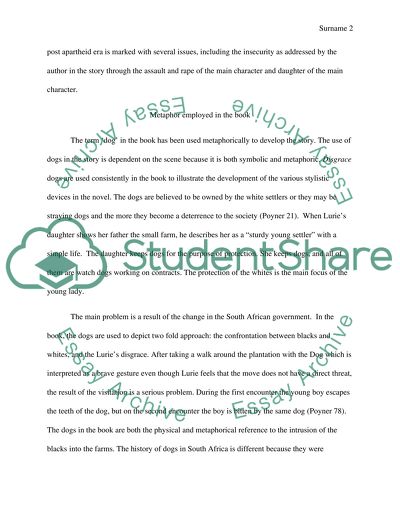Cite this document
(“Metaphors in the Disgrace by J. Coetzee Essay Example | Topics and Well Written Essays - 1250 words”, n.d.)
Metaphors in the Disgrace by J. Coetzee Essay Example | Topics and Well Written Essays - 1250 words. Retrieved from https://studentshare.org/literature/1401850-argument-essay
Metaphors in the Disgrace by J. Coetzee Essay Example | Topics and Well Written Essays - 1250 words. Retrieved from https://studentshare.org/literature/1401850-argument-essay
(Metaphors in the Disgrace by J. Coetzee Essay Example | Topics and Well Written Essays - 1250 Words)
Metaphors in the Disgrace by J. Coetzee Essay Example | Topics and Well Written Essays - 1250 Words. https://studentshare.org/literature/1401850-argument-essay.
Metaphors in the Disgrace by J. Coetzee Essay Example | Topics and Well Written Essays - 1250 Words. https://studentshare.org/literature/1401850-argument-essay.
“Metaphors in the Disgrace by J. Coetzee Essay Example | Topics and Well Written Essays - 1250 Words”, n.d. https://studentshare.org/literature/1401850-argument-essay.


